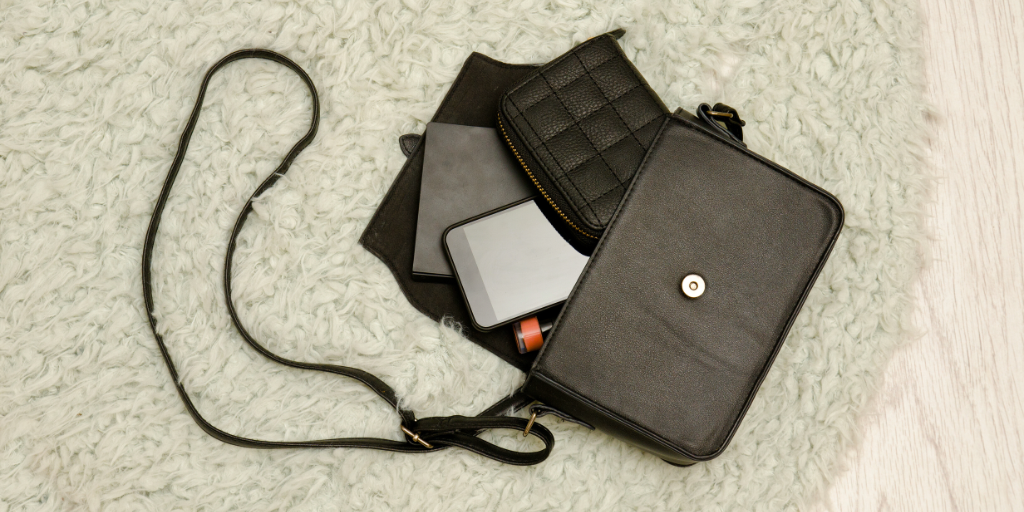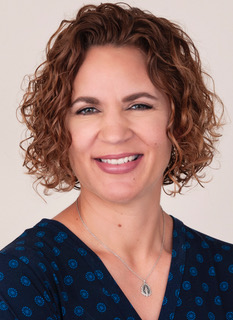
Kristina Talbot reflects on how letting go of things that weigh us down can lighten our loads.
You can tell a lot about a woman by the type of handbag she carries. Are you a big purse, little purse or wristlet/wallet type of woman? Each one has its pros and cons, and the fashion involved with this simple practical item can be overwhelming to women like me who had to be educated by friends who keep up with designer bags. It is good and necessary to carry things with us that we need or could use. But beyond our handbags, Lent can be a time to identify some unnecessary things that we no longer need to carry with us.
It's easy to go through our purses and clean out things we don’t need like old receipts, dried-up hand wipe packets or pens to name a few. What isn’t so easy is to clear away things within our hearts. For me, as I reflected inward on what needed to go, an uncomfortable word called resentment came to the surface. The word resentment can be defined as holding onto ill feelings towards or about someone for actions they have committed. It is inextricably connected to forgiveness and one of the most difficult aspects of the act of forgiving others.
Remember not the events of the past, the things of long ago consider not; See, I am doing something new! (Isaiah 43:18-19a)

Holding On to Resentment
Often, we hold onto resentment when we have been hurt because of some form of sin. And the reality of the human experience is that we will both sin and be sinned against. In his letter Spes Non Confundit about this Jubilee year of Hope, Pope Francis says, “every sin ‘leaves a mark’. Sin has consequences.” As a result, we are called not only to repent and seek reconciliation for the sins which we commit, but we are called to also forgive and let go of any resentments from the sins which left a mark. This is not easy, nor can it be done in isolation of grace.
Many of us experience very real and valid wounds because of the sins of others which take time to heal and mend. Often there is a misconception that in forgiveness, one forgets the wrong or is expected to act as though they have never been wronged. What can get lost in this misconception is that sometimes holding onto resentment isn’t about remaining bitter; it can feel as though resentment has become a form of self-protection to feel safe from being hurt again.
This experience of full forgiveness cannot fail to open our hearts and minds to the need to forgive others in turn. Forgiveness does not change the past; it cannot change what happened in the past, yet it can allow us to change the future and to live different lives, free of anger, animosity and vindictiveness. Forgiveness makes possible a brighter future, which enables us to look at the past with different eyes, now more serene, albeit still bearing the trace of past tears. (Spes Non Confundit)
When We Hope in the Lord, We Find Refuge in Him
In this Jubilee Year of Hope, it is a time to remember that “Hope does not disappoint” (Romans 5:5). When we place our hope in the Lord, we can also find safety and refuge in Him. Thankfully, this extends even beyond our physical safety, but also our emotional health and well-being.
To forgive does not mean that we forget. We are very much allowed and sometimes called to establish new boundaries and navigate relationship dynamics differently in ways that safeguard our hearts. But the Lord does not want us to hide behind the walls of resentment because in so doing, we can create barricades that block His love which is intended for us.
Hope finds its supreme witness in the Mother of God. In the Blessed Virgin, we see that hope is not naive optimism but a gift of grace amid the realities of life. (Spes Non Confundit)

The gift of forgiveness and letting go of resentments associated can mean freedom for not only our sins but also freedom to live unbounded by the sins of those who have sinned against us. As we prepare our hearts to take the walk with Christ toward Calvary in the coming weeks, let us also open ourselves to give Him room to reveal to us what we need no longer carry. You may just find that more than your handbag gets lighter.
Share your thoughts with the Catholic Mom community! You'll find the comment box below the author's bio and list of recommended articles.
Copyright 2025 Kristina Talbot
Images: Canva
About the Author

Kristina Talbot
Kristina Talbot is a Licensed Clinical Social Worker and native Floridian who loves that her engineer husband enjoys Karaoke, and her four children enjoy carpool line with the music up. Kristina is the owner and founder of ARISE Mental Health Consulting Services and has a ridiculous amount of knowledge about football. You can follow Kristina on Facebook and Instagram @arisemhc.


.png?width=1806&height=731&name=CatholicMom_hcfm_logo1_pos_871c_2728c%20(002).png)
Comments